smartglasses
Latest
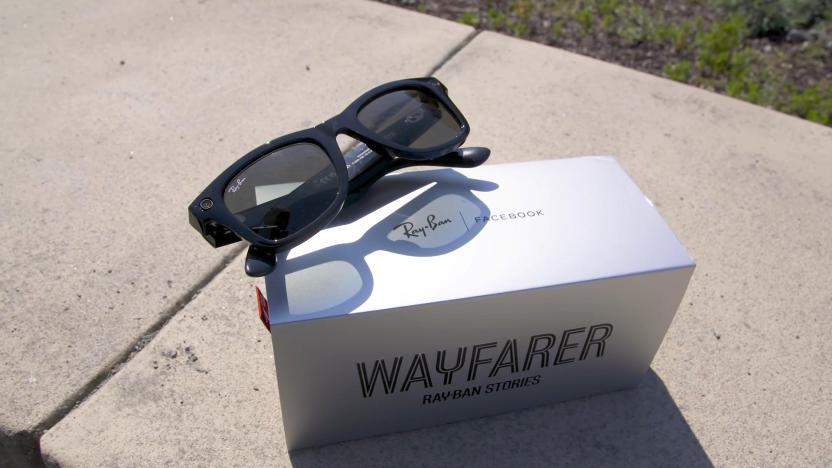
Meta and Ray-Ban's Stories glasses can now send and read Messenger texts
Meta has released a new software update for Ray-Ban Stories that enhances the voice capabilities of the smart glasses.

Huawei is working on a series of stylish smart glasses
Alongside the P30 Pro, the P30 and a bunch of accessories, Huawei had a surprise: smart glasses. No, it isn't 2016. The company is working with Korean eyewear (and pop-culture influencer) Gentle Monster to produce a line of smartphones eyewear that people might be willing to wear in public. CEO Hankook Kim took to the stage in Paris to, well, badmouth Snapchat Specs before hurling out some hollow design platitudes and, well, words of little of consequence.
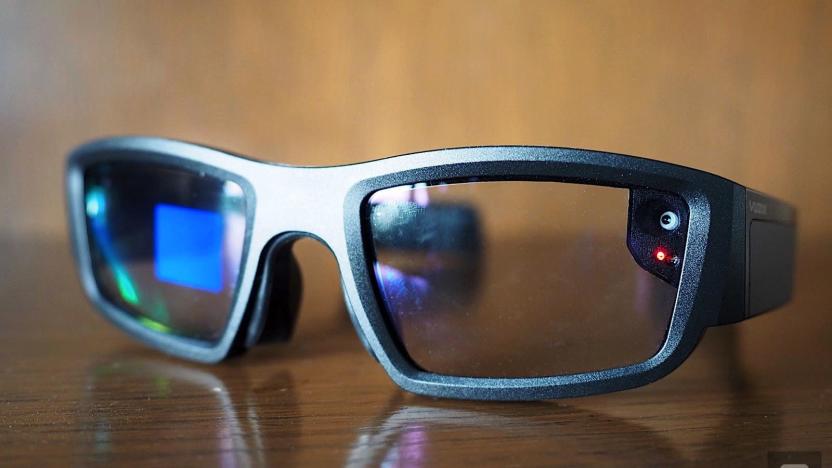
Vuzix’s smart glasses still aren’t ready for prime time
After years of development, Vuzix is now ready to ship the Blade, its first pair of consumer-ready smart glasses. I had a good look at it last month, but at the time, it was lacking a few core features like Alexa integration and step-by-step directions. Over the past week however, Vuzix shipped a couple of big software updates and I was finally able to test them out. The features certainly make the Blade a lot more functional than before, but they're still not enough for me to recommend these $1,000 pair of glasses.
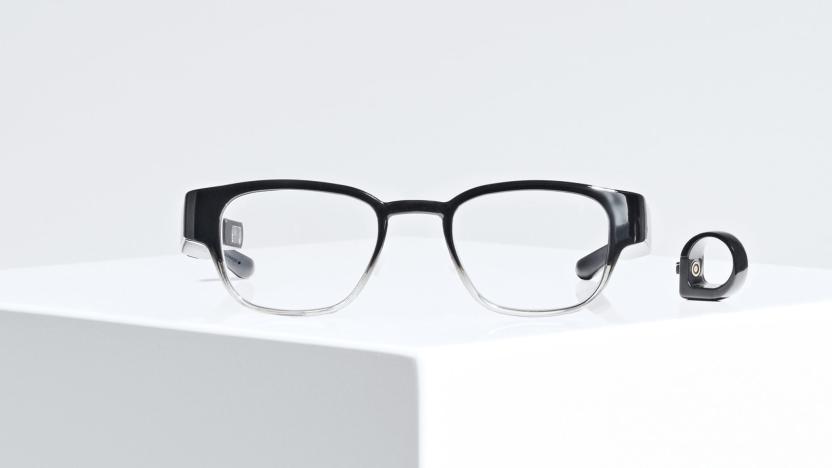
Custom-made smart glasses pick up where Google Glass left off
Earlier this month, Thalmic Labs announced it would be ending the production of Myo, a gesture-controlled armband that it's been developing for the past few years. The company has now changed its name to North and have decided to shift focus to an entirely different project. Today, it's finally ready to reveal what that project is. It's called Focals, a pair of smart glasses that uses holographic display technology.
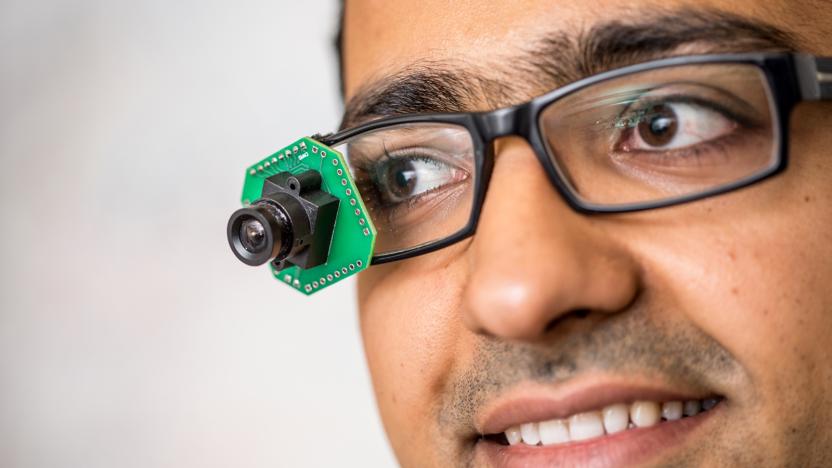
Smart glasses could stream video without killing your battery
There a number of reasons why camera-equipped smart glasses haven't taken off, whether it's dorky designs, bans or just a lack of practical applications beyond niche audiences. However, there's a common theme for them all: they need big batteries to handle all that streaming video, which guarantees a bulky set of spectacles. There might be a solution in the long run, however. University of Washington researchers have crafted a video streaming method that consumes up to 10,000 times less power than traditional methods. The trick, the team said, is to offload most of the hard work to another device using clever wireless transmissions.
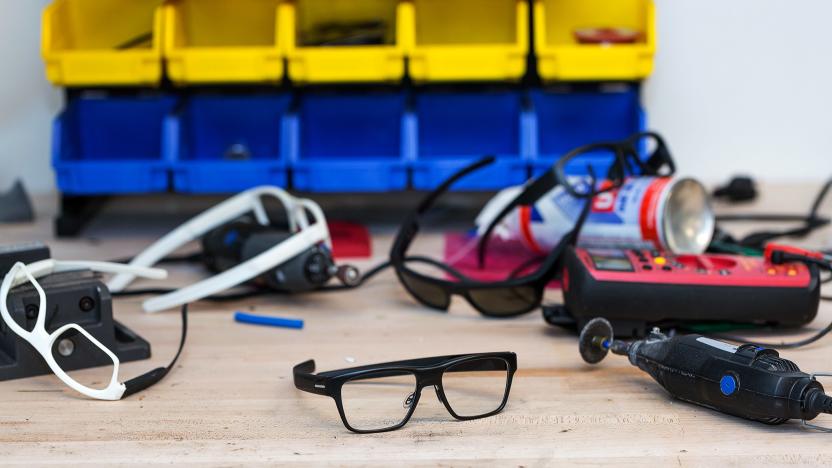
Intel cancels its smart glasses due to lack of investment
When Intel showed off its Vaunt smart glasses (aka "Superlight" internally) back in February, we had high hopes for a new wave of wearable tech that wouldn't turn us into Borgs. Alas, according to The Information's source, word has it that the chip maker is closing the group responsible for wearable devices which, sadly, included the Vaunt. This was later confirmed by Intel in a statement, which hinted at a lack of investment due to "market dynamics." Indeed, Bloomberg had earlier reported that Intel was looking to sell a majority stake in this division, which had about 200 employees and was valued at $350 million.

FedEx will use smart glasses to help pilots land in emergencies
Smoke is understandably a serious danger for aircraft, and not just in life-threatening situations -- the FAA notes that there's typically one smoke-related landing per day. But how does the pilot land with a smoke-filled cockpit where they might not even see the instrument cluster, let alone the outside world? FedEx and the Osterhout Design Group have an idea. They're showing off SAVED (Smoke Assured Vision Enhanced Display -- yes, it's a forced acronym), a hybrid smart glasses and oxygen mask system that provides data from the aircraft's HUD and external cameras to help with emergency landings. Pilots won't have to fly blind or risk passing out just to avoid a disaster.
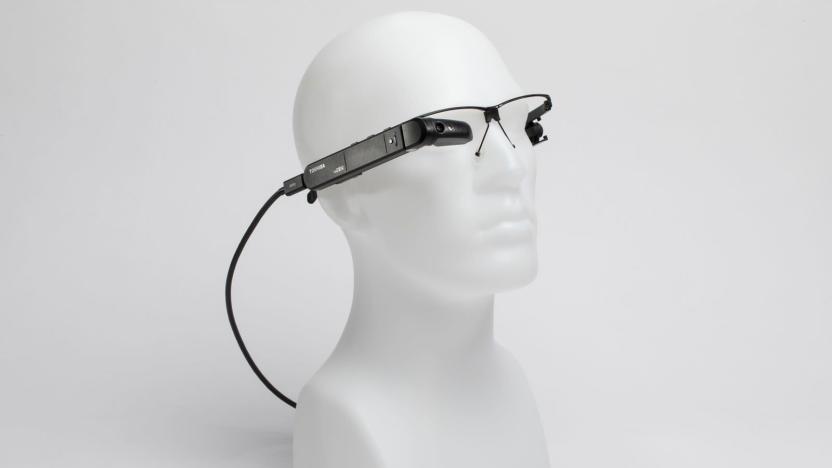
Toshiba's smart glasses are powered by mini Windows PCs
Toshiba is stepping into the world of wearable computing with its new Windows-powered smart glasses. You can think of them as a slightly more powerful pair of Google Glasses -- except, instead of being purely standalone, they're attached to one of Toshiba's dynaEdge Mini PCs. Those systems are basically Windows laptops shrunken down into handheld, battery powered bricks. Portable computers are popular with industrial field users who need powerful computers on the go, but find laptops to be too cumbersome. With its new AR100 Head Mounted Display, Toshiba is aiming to make those systems a lot more useful.
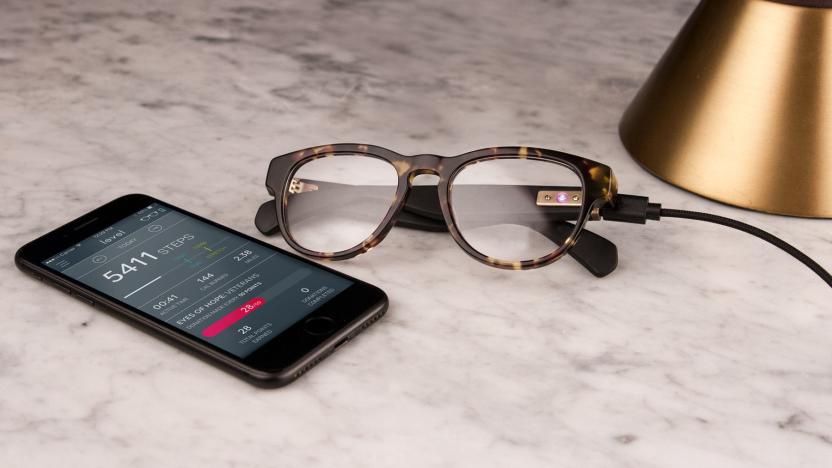
Level's activity-tracking smart glasses launch this March
Even though Intel unveiled its Vaunt smart glasses earlier this month, insurance provider VSP has actually been working on its own take on smart eyewear for well over a year now. It's called Level, and while it won't offer heads-up notifications like the Vaunt, it does feature activity tracking and calorie counting. Think of it as less of a Glass successor, and more like a Fitbit you wear on your face. Now, after nearly a year of beta testing, VSP is finally ready to bring Level to the public for the first time. It will cost $270, excluding lenses.

Police in China are scanning travelers with facial recognition glasses
Police in China are now sporting glasses equipped with facial recognition devices and they're using them to scan train riders and plane passengers for individuals who may be trying to avoid law enforcement or are using fake IDs. So far, police have caught seven people connected to major criminal cases and 26 who were using false IDs while traveling, according to People's Daily.

Intel unveils smart glasses that you might want to wear
Intel has launched an impressively light, regular-looking set of smart glasses called Vaunt, confirming rumors from Bloomberg and others. Seen by The Verge, they have plastic frames and weigh under 50 grams, a bit more than regular eyeglasses but much less than Google Glass, for example. The electronics are crammed into the stems and control a very low-powered, class one laser that shines a red, monochrome 400 x 150 pixel image into your eye. Critically, the glasses contain no camera, eliminating the "big brother" vibe from Glass and other smart glasses.

Intel spin-out could launch AR smart glasses this year
Intel is reportedly working on a pair of AR smart glasses codenamed 'Superlite.' According to Bloomberg, the wearable will be part of a new hardware division, possibly called Vaunt, and could launch later this year. Intel wants to sell a majority stake in the business, which it's currently valuing at roughly $350 million. Investment, of course, is about financial aid, but the company is reportedly interested in sales and design expertise too. The device itself supposedly connects to your phone over Bluetooth and overlays images with a laser-based projector that reflects off the lens.
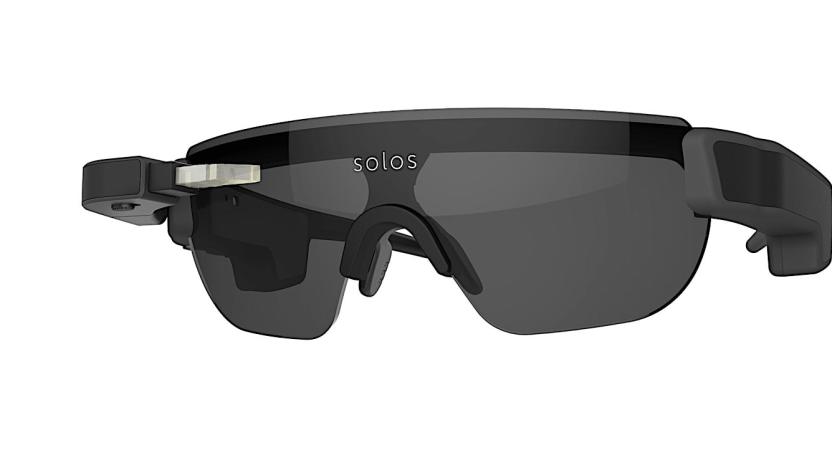
SOLOS smart cycling glasses are going for a run
While the consumer smart glasses craze has ebbed, the technology has found a niche in the sport training world, especially among cyclists. At CES on Monday, SOLOS debuted the latest iteration of its smart cycling glasses, also called SOLOS.
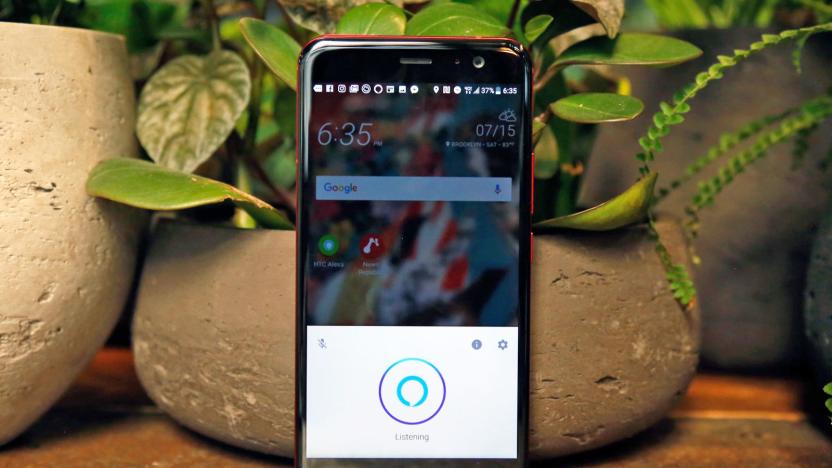
Amazon reportedly working on Alexa-enabled 'smart glasses'
Amazon wants to make Alexa a more formidable competitor to Google Assistant and Siri by letting you put it on your face and take it anywhere, according to a Financial Times report (paywall). The company is said to be developing a pair of normal-looking eyeglasses that tether to your smartphone and allow you hear, and presumably speak to, Alexa via a bone-conduction audio system. There won't, however, be a screen or camera on the model as with Google Glass.

Electronic glasses auto-focus on what you're looking at
They're not very pretty, but prototype eyeglasses from University of Utah scientists could make progressive lenses obsolete for older people. Using electronically activated lenses and infrared distance meters, they can focus automatically on whatever you're looking at, whether it's far or close up. Once perfected, the device could eliminate the need for multiple pairs of reading or driving glasses for folks with presbyopia or farsightedness.

Dior's frame-maker is developing mood-assessing smartglasses
The Italian company that makes frames for Dior, Fendi and Hugo Boss eyewear is working on something more high-tech than it's used to: a pair of smartglasses. According to Bloomberg, Safilo Group SpA spent the past year developing internet-connected glasses with the intention of debuting it at CES 2017. The pair will reportedly be more like Snap's Spectacles than Google Glass -- a device that looks just like any eyewear out there with some "smart" capabilities.

Intel wearables show models' stress levels on Paris runway
Intel's continuing experiment with wearables is getting serious. The company teamed up with British designer Hussein Chalayan to create smart glasses and belts for five models in Chalayan's Spring/Summer 2017 show today. The devices are powered by Intel's Curie module for wearables, though neither company has expressed plans for actually making these accessories widely available.

The US Olympic cycling team is training with smart glasses
When the US cycling team heads to the Olympics in Rio this summer, it'll have an ace up its sleeve: training with smart glasses. Solos has worked with the team to create augmented reality glasses that show vital data in mid-ride (such as cadence and heart rate), making it ideal for athletes looking to push themselves a little harder. It talks to common cycling apps, too, such as MapMyRide, Strava and TrainingPeaks. However, the best part may be the availability -- Solos is running a crowdfunding campaign to get everyday cyclists using the eyewear.

These Japanese smartglasses are trying to teach me zen
I'm on the subway, my head tilted downward to face my phone. I blink five times, I put my hand on my tummy to "feel" my breathing. To casual onlookers, I look suspicious as hell (or about to cry), but I'm meditating -- so please leave me alone. Yes, there's no lack of meditation apps on both iTunes and Google Play, but a wearable that monitors your body's reactions and offers feedback is rarer. JINS Meme is a pair of Japanese-made smartglasses that look pretty much like normal glasses. I've trained with them and run with them, and now the latest app for the specs is trying helping me to chill the eff out.

JINS smartglasses swap fitness advice for meditation guidance
In a bid to get you focusing at work, Japan-based JINS has announced a trio of companion apps for its Meme smartglasses. The focus isn't on posture or workouts this time, but literally focus -- by monitoring your eyes. These are the same glasses we've been using at the gym, but this time the apps tap into the high-tech sensors found on the nose bridge. Specifically, three-point electrooculography (EOG) sensors that can pick up minute electromagnetic changes from your eyes, detecting when you blink without any cameras involved. The company cites scientific research that shows that frequency and intensity of our blinks represent whether we're concentrating or not, and JINS has built three different apps that track that. Oh, and your posture, too. No slouching.











